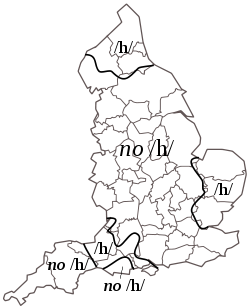|
ESL Forum:
Techniques and methods
in Language Teaching
Games, activities
and teaching ideas
Grammar and
Linguistics
Teaching material
Concerning
worksheets
Concerning
powerpoints
Concerning online
exercises
Make suggestions,
report errors
Ask for help
Message board
|
ESL forum >
Grammar and Linguistics > Which is true?
Which is true?
|

xyzzyx

|
Which is true?
|
|
Dear colleagues, I want to learn which is true and WHY ?
an historical place or a historical place
I wait your answer?
|
31 Dec 2011
|
|
|
|

libertybelle

|
The usual rule is:
An comes before a word that begins with a vowel sound. (an orange)
A comes before a word that begins with a consonant sound (a boy)
The reason we say vowel or consonant sound is because some words, such as hour start with a consonant but you don �t hear it - the sound of hour is pronounced "our". (a vowel sound)
Therefore you treat it as if it starts with a vowel.
I say to my students that if you use A before a vowel-sounding word - they �ll sound as if they have a throat problem - for example: A Apple.
Hope this helps
L
An or a historical site? Lots of Brits and others don�t pronouce H - so that�s a difficult question.
|
31 Dec 2011
|
|
|

David Lisgo

|
|
So according to Libertybelle �s explanation, whether you use "an historical place" or "a historical place" depends upon your pronunciation, but the written form will usually depend upon the type of English you use. In Japan students are taught "an historical..." as they usually follow American English as Americans usually drop the �h � in speech. In Britain it would be "a historical.." as British people rarely drop the �h � in speech. |
31 Dec 2011
|
|
|

Apodo

|
|
An historical is heard occasionally, usually to describe very formal occasions, momentous political change etc. A politician might say, �The signing of this agreement between our two countries is an historic moment which will blah blah blah.... � It �s used because of the sound of aspirant �h � starting the word. It seems to be used in British English. This link explains it: So here�s the general rule.
 If you speak and write British English, you can probably
keep using an before historical, hysterical,
habitual, etc. I doubt that you will be challenged
by your own countrymen, and if Americans challenge you, just point out that
British usage and American usage often differ. If you speak and write British English, you can probably
keep using an before historical, hysterical,
habitual, etc. I doubt that you will be challenged
by your own countrymen, and if Americans challenge you, just point out that
British usage and American usage often differ.
If you are American, you probably should use a
rather than an,
even in a historic occasion or
a historical reference.
Most of us are comfortable with a historic
occasion, because the word historic
has fewer syllables than historical,
so the h is
more fully pronounced. But if, like me, you are old enough to find a historical reference a
tad uncomfortable, then go ahead and say an historical
reference.
And if you are challenged, simply trot
out the explanation I have given you here, or better yet, send your challenger a
link to this article.
|
31 Dec 2011
|
|
|

libertybelle

|
David - I beg to differ!
Spoken Cockney and many other places in England never pronounce their H �s.
I �m American and rarely drop my H �s.
I would never say �arry Potter or �istorical! (even though it is very charming!)
Just for fun - listen to "Wouldn �t it be Loverly" from My Fair Lady.
For more about written English - see here:
http://wordinfo.info/unit/3431/ip:1
Here is a map of the places in GB where they drop and don �t drop the letter H.

|
31 Dec 2011
|
|
|

jazzeux

|
Here �s what I found:
"A" is correct for all. Nevertheless, there is an old practice, which has not yet completely died out, in which an is used in place of a if certain conditions are fulfilled. These are complex, involving the stress pattern of the h -word, the vowel which follows the h
,and the part of speech. And not all accounts of these rules agreewith
one another. In general, only adjectives which begin with hi or hy in an unstressed syllable take an (not including cases where i or y is pronounced as a �long i � as in five ) .
I
believe that reduces the possibilities to only four. Ratherthan
memorizing a great many rules, simply recognize that you will seethe
following four adjectives preceded by an on occasion -- when the writer is following older, more conservative practices.
historic(al), hysteric(al), Hispanic, and hypnotic
(from: http://www.englishforums.com/English/AHistoryVsAnHistory/dncdl/post.htm)
|
31 Dec 2011
|
|
|

moravc

|
hehe funny... I �ve never heard an Englishman saying: I saw an �istoric �ouse. :-D
I thought French and Russians are experts in dropping "h". :-D
I drop H in few words - "an hour" , "an honest man"...
(and I do not use an with "yu" sound - a university, a unicorn, but an umbrella, an underground station...)
Glad to learn something new ;-D
|
31 Dec 2011
|
|
|
|
|